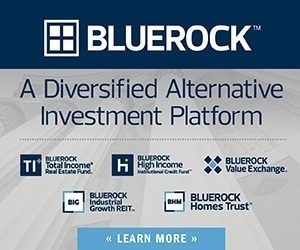New World Disorder and Your Financial Freedom
March 16, 2022 | Lewis J. Walker | Capital Insight Group
This writer─with a BS degree from the School of Foreign Service, Georgetown University, Washington, DC, and as a Certified Financial Planner practitioner, financial advisor and investment strategist─has long been fascinated with the interplay between global power politics and domestic political and economic developments. Most intriguing has been the effect these factors could have on your personal pursuit of financial freedom and self-sufficiency. Two articles in The Wall Street Journal, 3/11/2022, illustrate the connection between big-picture political machinations and your potential economic wellbeing: “Sanctions Deal New Blow To Globalization Dream” and “Stocks Fall As Inflation Increases.”
On July 1, 1997, mainland Communist China took over Hong Kong after 156 years of British rule. About three years before the handover, this traveler led a sizeable delegation of financial planners and their guests on a study trip to Japan and Hong Kong. We met with bankers, investment strategists, economists, business leaders, and government officials to get a better understanding of international investment opportunities and Asian economic trends.
While there was a degree of trepidation amongst leaders in Hong Kong as China’s take over loomed, there also was some sense of hopefulness. The idea that “China will not take over Hong Kong, but rather Hong Kong will take over China,” was discussed. The freedom to achieve and grow according to one’s ability, entrepreneurial energy and creativity, underpinned by British rule of law, was thought to be infectious, and perhaps likely to spread into authoritarian China at large.
Following WW I, President Woodrow Wilson coined the phrase “New World Order” to describe the allure of freedom. At the end of the Cold War, Mikhail Gorbachev and George H. W. Bush revived the term to characterize a new scheme for great power harmony. American leaders and influencers embraced ideas of global cooperation, a free trade vision that has guided American policy for almost 30 years. We now see that with China becoming more autocratic and bellicose with designs on Taiwan, and Putin blowing up Ukraine, dreams of globalized “one world cooperation” appear to be a chimera of hope not to be.
To facilitate free trade and the opening of markets along with the potential to spread democracy, the World Trade Organization (WTO) was created in 1995. China was admitted in 2001 and Russia became the 156th member in 2012. Now WTO leaders are endeavoring to throw Russia out of the organization. American companies are pulling out of Russia. Given China’s growing threats to American hegemony, and the lessons of Covid-19, our leaders and American consumers are increasingly wary of reliance on China for so many vital medical supplies and equipment, and other goods. As this is written, controversy rages over America’s loss of energy independence and the wisdom of begging foreign entities to fill our energy gaps, while we could once again become energy independent by tapping domestic resources and American ingenuity. “Energy dependence” is seen as a threat to national security and the wellbeing of our citizenry.
Some pundits maintain that globalization hollowed out Middle America and exacerbated the eroding of the Rust Belt as jobs left for cheaper production venues. That trend did hold down the inflation rate. After WW II, “Made in Japan” was synonymous with “cheap.” Later, “Made in China” became the watchword. “Made in America” became rare and expensive. Those trends are reversing in the face of world disorder. “Buy American” is trending. The demand for oil and more environmentally friendly natural gas produced in America by American workers is growing. Environmentalist are beginning to recognize the conundrum inherent in importing solar panels and windmill parts from China, as well as threats posed by China’s dominance in rare earth and strategic minerals vital to electronics, batteries, electric vehicle manufacturing, and defense. Basic and crucial goods and services will become increasingly expensive as production shifts to the home front and/or to Canada and other friendly partners. Inflation becoming endemic is a clear danger.
In your investment strategies, have sufficient liquid capital to ride out market downturns and market disruptions. Long-run investments like stocks should focus on companies with pricing power, growth potential, dividend growth, and the ability innovate. Investments in real estate and other tangible investments, especially those available to Accredited Investors with certain levels of net worth, may deliver tax benefits as well as an inflation hedge. The changing environment suggests higher levels of risk, so be able to handle investments that underperform or don’t pan out. Risk vs. reward evaluations are important.
For closely-held business owners the unfolding environment offers growing pressures, but also opportunity for those with vision and a plan. Labor shortages, which are a plus for workers, exacerbate demands to increase salaries and benefits while challenging management and fueling inflation. If you own a small, medium, or large business, that entity likely is your greatest single investment. Have you had it valued? A current valuation is critical to effective strategic planning and value acceleration strategies. Talk to your financial advisor!
The world has changed. Have you?
Lewis Walker, CFP®, is a life centered financial planning strategist with Capital Insight Group; 770-441-3553; lewis@lewwalker.com. Securities & advisory services offered through The Strategic Financial Alliance, Inc. (SFA). Lewis is a registered representative and investment adviser representative of SFA, otherwise unaffiliated with Capital Insight Group. He’s a Gallup Certified Clifton Strengths Coach and Certified Exit Planning Advisor.











